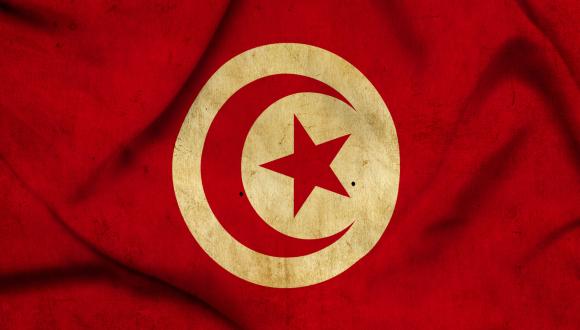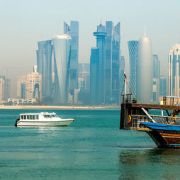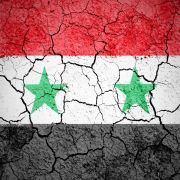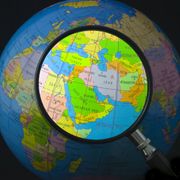Two Revolutions, Two Outcomes

December 17 marked the fourth anniversary of the self-immolation by a despairing young Tunisian vendor in a dusty provincial town – an act that improbably and astoundingly sparked the wave of upheavals that cascaded back and forth across North Africa and the Arab Middle East, toppling regimes and destabilizing the entire region.
Concurrent with the anniversary, developments in Tunisia and Egypt – the election in late December to the Tunisian presidency of 89-year old Beji Caid Essebsi, a former minister in Tunisia’s pre-revolutionary governments, and the acquittal in November of deposed Egyptian president Hosni Mubarak and close associates on charges of responsibility for the deaths of 847 Egyptians during the 2011 “Tahrir Square Revolution” – invited comparisons on what had, and had not, been achieved by the swift overthrow of Mubarak and (one month earlier) Tunisia’s Zine El Abidine Ben Ali.
In some respects, the similarities were striking.
Essebsi’s election, coming on the heels of his Nida’a Tounes party’s success in October parliamentary elections, marked the return to center stage of the mostly secular socio-economic elites – based mainly in Tunisia’s relatively prosperous coastal cities and towns – that had dominated Tunisia since independence. By contrast, the Islamist Ennahda party, which drew its support of from a cross-section of alienated youth, urban poor and traditional sectors of society, especially in the country’s periphery, lost its status as the leading party in parliament and refrained from fielding a candidate for president.
In Egypt, the unfolding of events was radically different and much more confrontational, but the results partially resembled those of Tunisia – after having dominated Egyptian elections in 2011-12, the Muslim Brotherhood government was removed from power, and the country’s elites, led by the military, regained their grip on the Egyptian state. Similar, too, was the longing for stability and experience in governing among substantial portions of both the Tunisian and Egyptian publics after years of uncertainty, social tension, economic crisis, and mismanagement.
The surfacing of violent Salafi-jihadi groups in both countries was unsettling, as well, and damaged the standing of both Ennahda and the Brotherhood.
Nonetheless, the differences between the two countries’ trajectories and experiences are stark. From the outset, Tunisia was the one country in the Arab Spring upheavals that had a reasonable chance of translating the overthrow of the old regime into a sustainable pluralist and democratizing order, owing to well-known factors – the country’s compactness and ethnic and religious homogeneity; a well-defined collective identity as Tunisians; a relatively large middle class; a tradition of active civil society (e.g. unions, lawyers, teachers); cultural openness to the outside world, and a common aversion to return to the era of strong authoritarianism.
During its many years in opposition, Ennahda had demonstrated a certain degree of receptivity to the ideas of pluralism, competitive elections, and the rule of law, while decrying both "extremist Islamism" and "extremist secularism". Following the recent elections, its long-time leader Rachid Ghannushi declared it imperative that Tunisia be ruled by a broad coalition until such time that it matures as a genuine democracy, when a party could govern after having won only 51 percent of the public vote because the rule of law and protection of the rights of the opposition would be entrenched.
The example of the Muslim Brotherhood’s rollercoaster experience in Egypt these last four years – from a swift ascent to power to a descent to the depths of being banned as a “terrorist organization” – reinforced Ennahda’s tendency not to overreach or engage in unbridled confrontation. At the same time, Ennahda will still need to satisfy its base to avoid being seen as just another political party. Essebsi, for his part, will need to govern effectively, i.e. address the difficult state of the economy, youth unemployment and alienation (worryingly, some young Tunisians have joined the Islamic State or Nusra Front fighting in Syria), and ameliorate the depressed conditions of the periphery, as well as bolstering Tunisia's security and control of its border regions.
Revolutions never move in a straight line. In Tunisia, the fact that an institutional process and rules of the game have been established and accepted is what makes the Tunisian experience unique. Now Tunisia moves on with the difficult business of coping with major challenges through "normal" politics.
Given the magnitude of Egypt’s socio-economic problems, the entrenchment of the “deep state” (its interlocking military-bureaucratic-economic elite), and the equally entrenched and authoritarian Muslim Brotherhood opposition, the prospects for a successful post-Mubarak transition to a democratic, pluralist order based on the rule of law were never high.
Since Mohamed Morsi’s removal from power in July 2013, the “deep state”, led by former defense minister and now President Abdul Fattah al-Sisi, has succeeded in consolidating its authority by promoting a familiar blend of charismatic presidential leadership; promises for renewed order; stability and economic development (e.g. the $8 billion project of digging a parallel channel to the Suez Canal); harsh repression of the Brotherhood and secular opponents alike; an utterly tamed and sycophant press, and appeals to Egyptian patriotism to combat foreign “plots”, both Islamist and Western, to destabilize the country.
The deep pockets of Saudi Arabia, the UAE and Kuwait have been vital to the regime. The extent of Sisi’s success was recently demonstrated on two fronts: the utter failure of Islamists to organize mass street protests following Mubarak’s acquittal and the absence of protests against a massive cut in state subsidies that resulted in significant prices rises in food staples, fuel, electricity and medicines.
Taming the jihadist insurgency in Sinai, which resulted in the brazen killing in October of 31 Egyptian soldiers, and which has now declared itself to be affiliated with the Islamic State, is one immediate priority. Reviving the vital tourist industry and attracting vital foreign investment is another.
Parliamentary elections, scheduled for March, will presumably complete the old-new regime’s restoration, as will Mubarak’s eventual release from a prison hospital to more comfortable and dignified surroundings.
This coloumn ws origially published in the Mideast Monitor. The author is a Principal Research Fellow at the Moshe Dayan Center for Middle Eastern and African Studies, Tel Aviv University.






